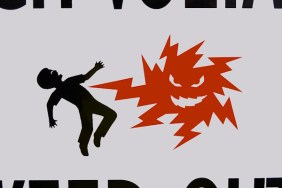In 1994 in Southern France, three cavers made an astonishing discovery after following an air current coming from a cliff and digging into a cave that had been sealed for 20,000 years. Inside the long-hidden Cave of Chauvet-Pont-d’Arc, the cavers were the first modern humans to lay eyes upon paintings estimated to be some 32,000 years old – the oldest known to exist. Those paintings are the subject of a 3D documentary called ‘Cave of Forgotten Dreams‘ by Werner Herzog.
Sealed off from the world for so long, the Chauvet paintings are breathtakingly vivid, and the scenes they display provide an emotional link to early human history. Horses, bison, wooly mammoths – the animals gallop across the limestone as if they could break away from it and spring back into life. The species depicted on the walls include some rarely or never found in other ice age paintings such as lions, bears, owls and rhinos. While no depictions of humans are present, aside from a possible “Venus” figure depicting the lower body of a woman, there are red ochre hand prints and hand stencils.
(top image via: wikimedia commons; above image via: ifc films)
The soft clay floor of the ground not only captured the claw marks of cave bears and impressions of their nests, but also the footprints of a lone child who wandered into the cave thousands of years after the drawings were created. These footprints, left 25,000 to 27,000 years ago, may be the oldest human footprints that can be dated accurately. Other human evidence discovered in the caves includes charred remains of ancient hearths and carbon smoke stains from torches.
The documentary Cave of Forgotten Dreams, which opened April 30th and is currently still in some theaters, offers a vivid glimpse of these drawings and the excitement they have brought to the archaeological community. Shot in 3D, the film gives ordinary people – not (at least as of yet) allowed to actually explore the caves – a sense of what it’s like to experience the drawings firsthand.





